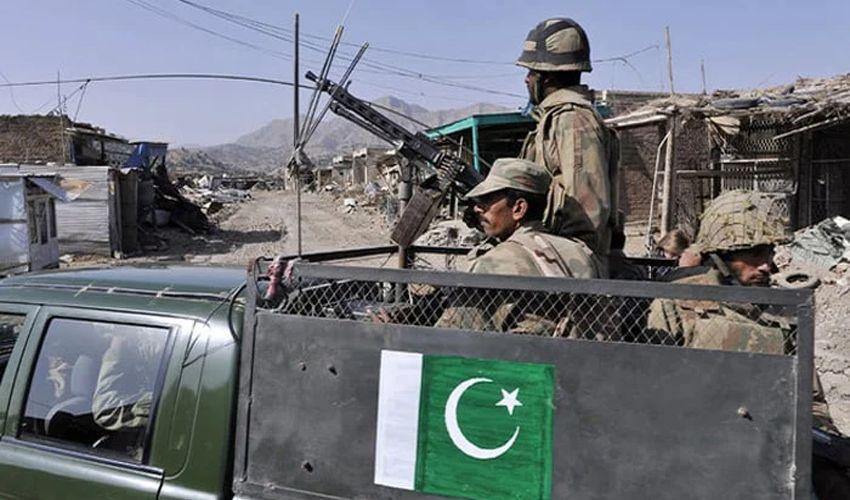Crisis and hope: The quest to rescue our global goals
The 17 goals, comprising 169 targets, represent humanity's shared commitment to tackle the world's most pressing challenges and build a more sustainable, equitable and prosperous future by 2030.


Since 2015, each year in September, we pause to celebrate the anniversary of the Sustainable Development Goals (SDGs), a visionary global agenda adopted in 2015.
These 17 goals, comprising 169 targets, represent humanity's shared commitment to tackle the world's most pressing challenges and build a more sustainable, equitable and prosperous future by 2030.
These interlinked goals encompass diverse aspects of human and planetary well-being, from eradicating poverty and ensuring gender equality to combating climate change and promoting sustainable economic growth.
As we reach the midpoint in the SDGs' timeline, it's an opportune moment to reflect on the progress made thus far. While substantial strides have been taken in various areas, significant challenges remain. The COVID-19 pandemic, which has disrupted lives and economies worldwide, has underscored the urgency of achieving these goals.
Eradicating poverty by 2030 requires addressing inequalities, providing social safety nets, and fostering inclusive economic growth. Global hunger rates have declined, yet nearly 9% of the world's population still faces food insecurity. Achieving zero hunger demands, more sustainable agriculture, improved access to nutritious food, and the promotion of food security in a changing climate is still a challenge.
Advancements in healthcare have saved lives, but healthcare systems remain unequal. The pandemic exposed vulnerabilities, emphasizing the need for robust health infrastructure and universal access to quality healthcare. Enrollment rates have improved, but access to quality education remains unequal. Remote learning during the pandemic has exacerbated disparities. Bridging the education gap requires targeted investments and innovation in education delivery. Significant strides have been made towards gender equality, but progress is uneven. Gender-based violence and unequal representation persist. Empowering women and girls, eradicating harmful practices, and promoting gender-responsive policies remain paramount. Access to clean water and sanitation facilities has improved, but challenges persist in rural areas. Ensuring water quality and sustainable water management are essential.
Renewable energy adoption is increasing, yet energy access for all remains a challenge. Transitioning to clean and affordable energy sources is critical for both environmental sustainability and poverty reduction. Economic growth has occurred, but decent work remains elusive for many. The informal sector, underemployment, and income inequality pose challenges. Promoting job creation, fair wages, and social protection is vital. Innovation and infrastructure development are progressing, but disparities in access persist. Fostering innovation ecosystems, bridging the digital divide, and investing in sustainable infrastructure are key. Inequalities are being addressed, but gaps in income, education, and access to resources persist. Policies promoting equality and inclusion must be central to development strategies.
Efforts to combat climate change are intensifying, yet greenhouse gas emissions continue to rise. Urgent action, including carbon neutrality and adaptation measures, is essential to limit global warming. Deforestation rates are decreasing, but habitat loss and biodiversity decline continue. Conservation efforts and sustainable land management are pivotal. Progress toward peace and justice has been uneven, with conflicts and human rights abuses persisting. Strengthening institutions, promoting the rule of law, and ensuring access to justice are essential. Partnerships for the SDGs are expanding, yet global cooperation is challenged by geopolitical tensions. Strengthening multi-stakeholder partnerships and international cooperation is crucial.
Pakistan has shown commitment to achieve SDGs and many steps has been taken so far but the effectiveness of these commitments hinges on concrete action, resource allocation, and accountability mechanisms. We need to align policies, mobilize funding, and involve diverse stakeholders to implement their commitments successfully. Additionally, tracking progress and reporting on outcomes are crucial to ensure accountability and drive continuous improvement.
We as a nation must unite to address common challenges, including vaccine equity, climate change, and economic recovery. Post-pandemic recovery plans must prioritize sustainability, resilience, and inclusivity. Leaving no, one behind remains at the core of the SDGs. Inclusive policies, social protection systems, and equitable access to resources are fundamental. The pandemic has exacerbated poverty and income inequality, threatening to push millions into extreme poverty. Effective social protection systems, progressive taxation, and policies addressing inequalities are vital.
Now we are left halfway so it's a call to action for everyone to step up and help revive the SDGs, ensuring a better life for people and the planet. As we stand at this pivotal juncture, the Pakistan’s commitment to the SDGs must be unwavering, and our actions must match the magnitude of the challenges we face. The 2030 deadline is fast approaching, and there is no time to waste.
The writer is Marium Amjad Khan, Manager Awaz Foundation Pakistan, based in Islamabad.
Pakistan's inning going on against South Africa in final ODI
- 9 hours ago
Renowned TikToker Khaby Lame performs Umrah
- 7 hours ago

Six terrorists killed, 16 security personnel martyred in South Waziristan face-off
- 10 hours ago
PM Shehbaz constitutes negotiation committee for talks with PTI
- 9 hours ago

Martyrs’ sacrifices to never be forgotten: COAS Asim Munir
- 3 hours ago

Turkiye’s FM meets Syria’s new leader in Damascus
- 2 hours ago











